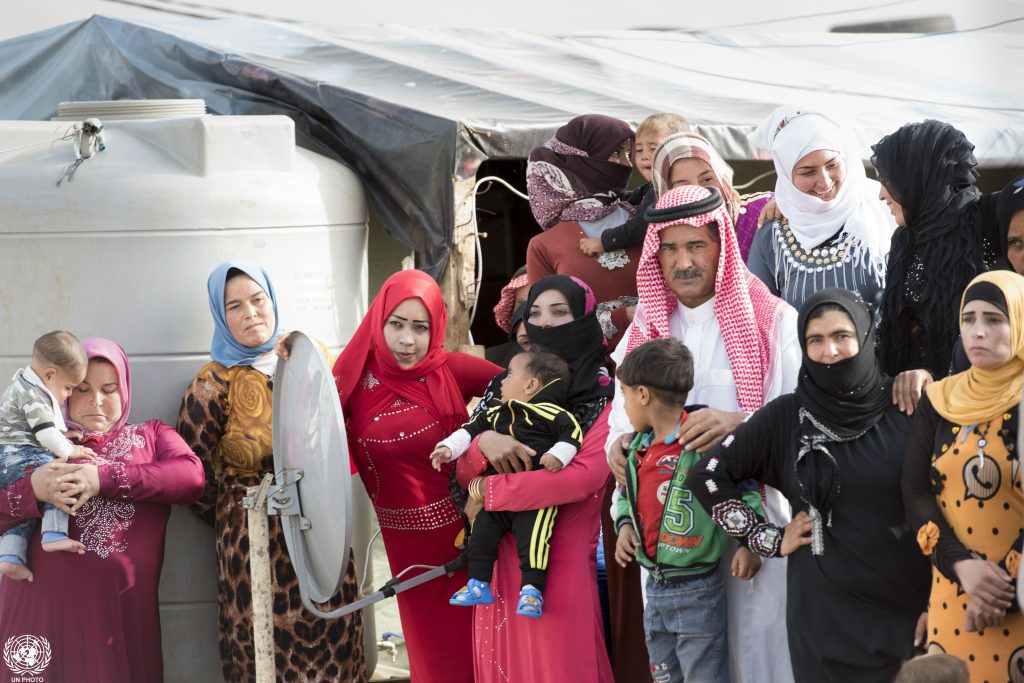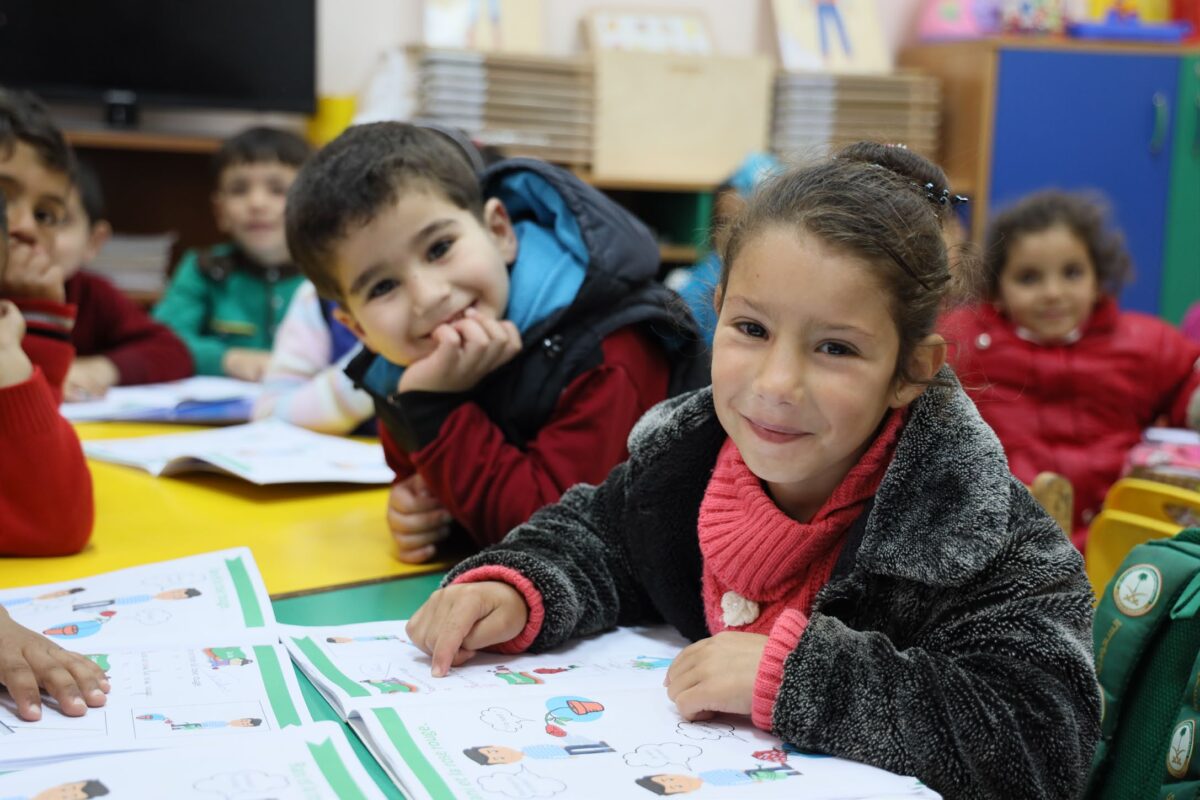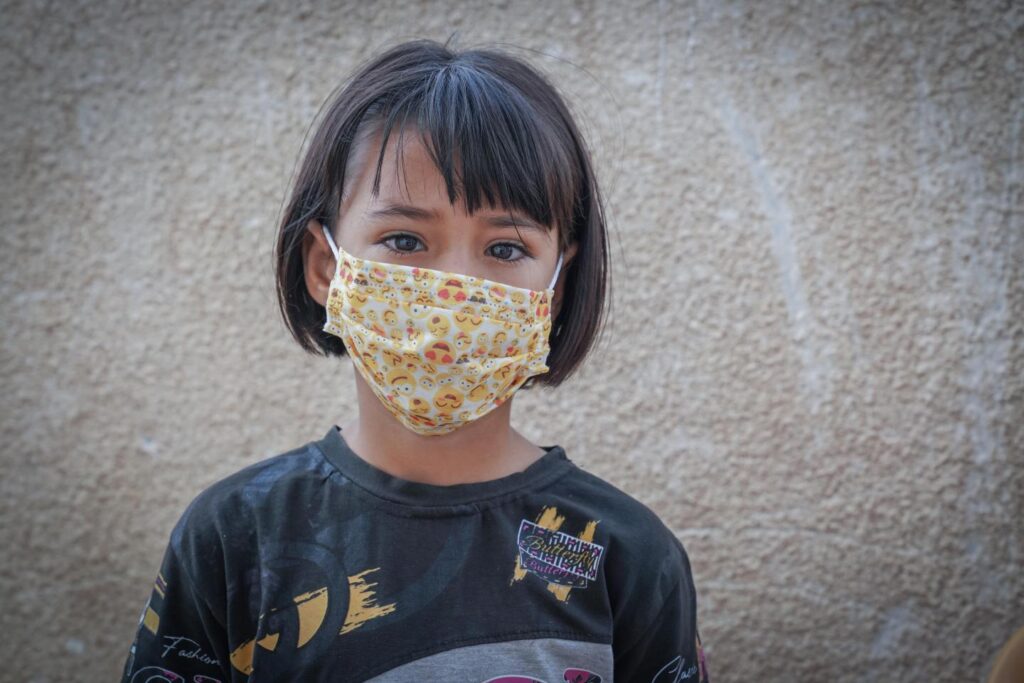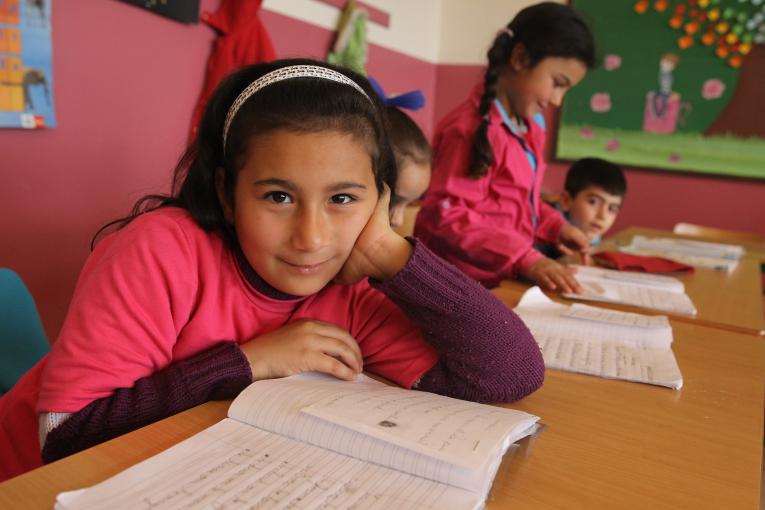Empowering Language Learning in Lebanon

US$2.2 MILLION UNESCO PROJECT FUNDED BY EDUCATION CANNOT WAIT WILL IMPROVE FRENCH TEACHING AND LEARNING TO BENEFIT REFUGEES FROM SYRIAN CRISIS AND OVERALL LEARNING OUTCOMES
Language is power. To empower its students and improve French teaching and learning – especially for Syrian refugees who have struggled to progress and thrive in classes primarily taught in the French language – UNESCO is partnering with the Lebanese Ministry of Education and Higher Education (MEHE) to scale up the impacts of a US$2.2 million project funded by Education Cannot Wait.
The project will promote the quality and effectiveness of teaching and learning in French for both Lebanese and non-Lebanese students to improve learning outcomes in core subjects. In a bilingual society, this will contribute to improvements in transition and retention rates, and provide a safer, more effective learning environment for recent arrivals fleeing the war, chaos and danger in Syria.
“This investment in developing the capacity of schools and teachers to deliver quality education to vulnerable Lebanese and Syrian children is one of the high priorities of the Ministry of Education and Higher Education in Lebanon to stress that access and enrollment to schools are not enough to ensure quality learning,” said Mr. Fadi Yarak, Director General of Education at the Lebanese Ministry of Education and Higher Education. “We have to continuously improve to deliver the best education for these children to ensure that they successfully finish their school years and move on to a brighter future.”
UNDERSTANDING THE LEBANESE EDUCATION CONTEXT
Development of Lebanon’s education sector was disrupted by the onset of the Syria Crisis, which obliged the Ministry of Education and Higher Education (MEHE) to focus on coordinating and managing an emergency response.
Since 2011, MEHE has created places for more than 200,000 non-Lebanese, primarily Syrian, students in its public schools, from a starting point of around 3,000. As a result, the kindergarten to Grade 9 public school population has doubled in the last seven years.
The Ministry’s focus from 2018 is on transitioning from emergency response to meeting the development challenges of managing a protracted crisis. This is critical if Lebanon is to be able to offer all children the kind of education envisaged in Sustainable Development Goal 4 by 2030.
Around three-quarters of Lebanon’s public schools use French as the primary language for instruction for core subjects including mathematics and science from Grade 4 onwards. Students’ ability to learn effectively and progress is therefore highly dependent on developing functional literacy in a second language in early grades, supplemented by continuous, targeted, pupil-centric support from teachers onwards.
While many Lebanese students find the transition from Arabic to French instruction challenging, this issue is compounded for their non-Lebanese peers. These students are overwhelmingly Syrian nationals who have fled the conflict in their home country. Seven years into the Syria Crisis, half of all pupils enrolled in public schools are non-Lebanese. This presents significant challenges for the system, teachers, communities and students themselves.
“I believe that Education Cannot Wait has a very important role to play both to Lebanon and in other countries across the region. ECW’s financial resources and investments focus on quality education and powerful political advocacy, making ECW an impressive vehicle to influence and bring change,” said Philippe Lazzarini, Deputy UN Special Coordinator for Lebanon (UNSCOL), UN Resident and Humanitarian Coordinator for Lebanon and the United Nations Development Programme Resident Representative. “Although we now have 200,000 Syrian students absorbed in Lebanese public schools, we have approximately 300,000 more who are out of school, largely girls and youth over 14 years old.”
Lazzarini went on to underscore the value of this investment, encouraging its replication and scaling up across all regions in Lebanon to address the pressing needs of vulnerable host communities and displaced populations.
HOLISTIC APPROACHES
Addressing education in crisis in the extremely complex region requires multiple bespoke approaches, engagement with a wide variety actors, innovation and flexibility. In neighboring Syria, Education Cannot Wait-funded activities have reached nearly 30,000 children, including over 15,000 girls. In the Occupied Territories of Palestine, Education Cannot Wait-funded activities have reached over 138,000 children, including 67,300 girls. (Figures June 2018)
“Quality education is an essential building block for peace, stability and a better future in this region,” said Yasmine Sherif, Director of Education Cannot Wait, a new global fund for education in crisis hosted by UNICEF that is looking to mobilize US$1.8 billion to reach 8.9 million children living in crisis by 2021. ““This project enables Syrian refugees and vulnerable Lebanese to effectively study core subjects and participate in the cultural heritage of diversity, art and literature. Such pluralism is a critical aspect of education for peace and stability.”
PROJECT OUTPUTS AT A GLANCE
- Supporting schools, teachers and students, with a range of high quality, teaching and learning software, materials and equipment, focused on Francophone education.
- Building the capacity of the existing cadre of teacher coaches (DOPS Counselors) to support teachers in the classrooms of French medium schools, with an emphasis on math and science, as well as French language.
- Sharing and debating the results of the project and the broader issues of Francophone teaching and learning, and of education in non-mother tongues through a series of workshops and seminars, and producing learning materials and resources.
To download the PDF version click here.
Notes to Editors:
Information on the ECW Fund and its investment modalities are available at: www.educationcannotwait.org
About Education Cannot Wait (ECW)
ECW is the first global fund dedicated to education in emergencies. It was launched by international humanitarian and development aid actors, along with public and private donors, to address the urgent education needs of 75 million children and youth in conflict and crisis settings. ECW’s investment modalities are designed to usher in a more collaborative approach among actors on the ground, ensuring relief and development organizations join forces to achieve education outcomes. ECW’s Secretariat is hosted by UNICEF in its Headquarters in New York. Additional information is available at www.educationcannotwait.org
For press enquiries and to schedule an interview, contact:
Ms. Anouk Desgroseilliers,
adesgroseilliers@unicef.org, +1 917 640-6820
For Press Inquiries:
Anouk Desgroseilliers:
adesgroseilliers@un-ecw.org
+1-917-640-6820
Kent Page:
kpage@unicef.org
+1-917-302-1735



